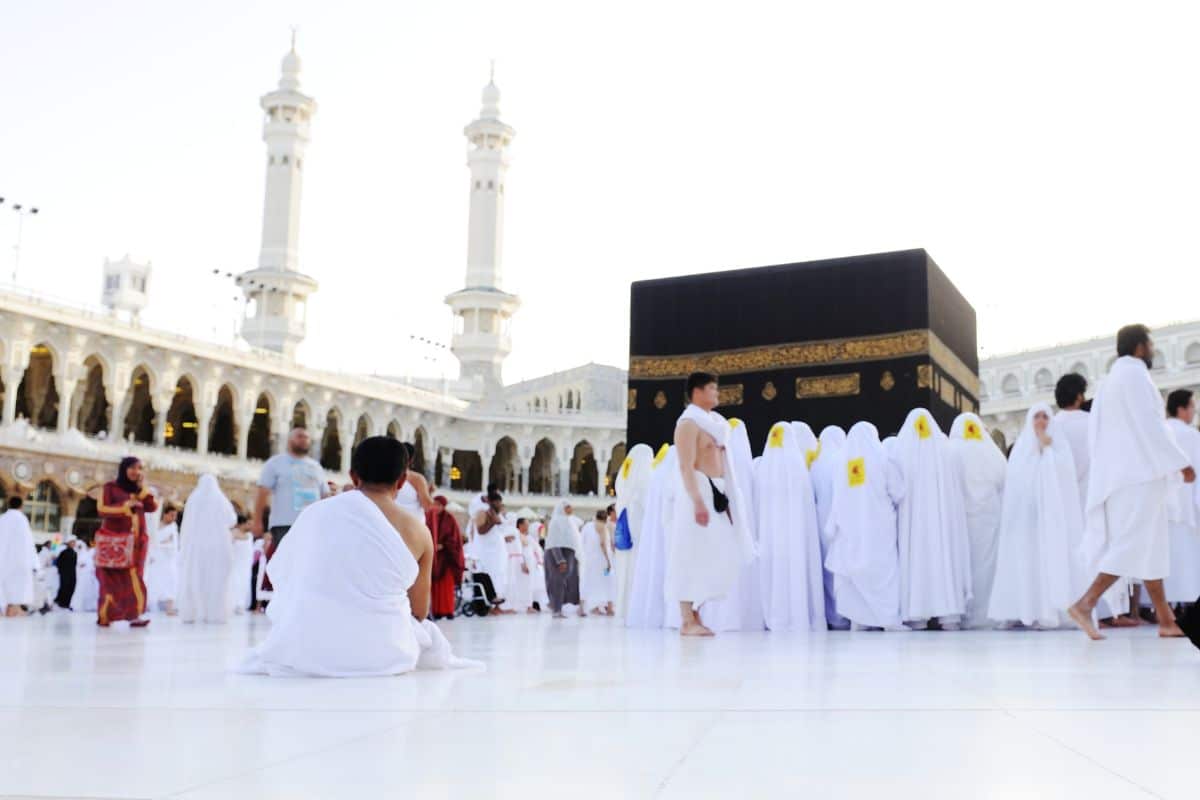
The Kingdom of Saudi Arabia, the cradle of Islam, has once again opened its doors to a monumental number of pilgrims, welcoming an astonishing 1.2 million Umrah pilgrims. The journey of Umrah pilgrims is a profound act of worship, a spiritual odyssey that draws millions to the holy cities of Makkah and Madinah. Unlike the annual Hajj, which has a specific time frame, Umrah pilgrims can undertake this lesser pilgrimage at any time of the year. This year's influx of 1.2 million Umrah pilgrims is a powerful testament to the unwavering faith of Muslims worldwide and the Kingdom's immense capacity to host such a massive congregation. The successful management of this vast number of Umrah pilgrims highlights the Saudi government's commitment to facilitating a seamless and spiritually enriching experience for all.
This article delves into the various facets of this achievement, exploring the preparations, the services provided to the Umrah pilgrims, the economic and social impact, and the future outlook for pilgrimage management. We will extensively use the key phrase "1.2 million Umrah pilgrims" to reflect the scale of this spiritual event.
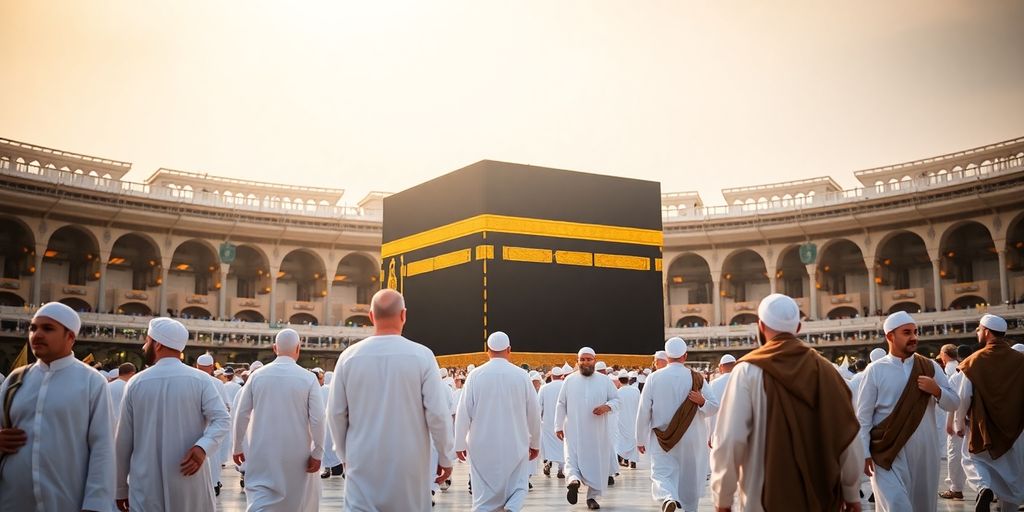
Preparing for the Arrival of 1.2 Million Umrah Pilgrims
The task of hosting 1.2 million Umrah pilgrims is a monumental undertaking that requires extensive planning and coordination. The Saudi government, through various ministries and agencies, begins preparations well in advance. These efforts are multi-faceted, encompassing infrastructure development, logistical arrangements, and the implementation of advanced security and health protocols. The successful arrival and accommodation of 1.2 million Umrah pilgrims are a direct result of these meticulous preparations.
Infrastructure and Facility Enhancements:
Holy Mosque Expansion: The Grand Mosque in Makkah, the primary destination for Umrah pilgrims, has seen continuous expansion to accommodate more worshippers. These projects are crucial for managing the flow of 1.2 million Umrah pilgrims.
Accommodation and Lodging: A vast network of hotels, guesthouses, and service apartments has been developed to house the 1.2 million Umrah pilgrims. These facilities range from luxurious five-star hotels to more affordable options, ensuring every pilgrim can find suitable lodging.
Transportation Networks: Modern transportation systems, including the high-speed Haramain Express train, play a vital role in moving the 1.2 million Umrah pilgrims between Makkah, Madinah, and Jeddah. Buses, taxis, and dedicated shuttle services are also in place to ensure smooth transit.
Logistical and Operational Planning:
Visa and Entry Procedures: The process of issuing visas to 1.2 million Umrah pilgrims has been streamlined through digital platforms and international collaborations. This efficiency ensures that the journey begins smoothly.
Crowd Management: Advanced crowd control techniques, supported by technology and a dedicated security force, are essential for the safety of 1.2 million Umrah pilgrims within the holy sites.
Health and Safety Measures: The Ministry of Health implements strict health protocols to protect the 1.2 million Umrah pilgrims from infectious diseases. This includes vaccination requirements, on-site medical clinics, and emergency services. The well-being of the 1.2 million Umrah pilgrims is a top priority.
The Pilgrim's Experience: From Arrival to Departure
The journey of the 1.2 million Umrah pilgrims is designed to be as spiritual and comfortable as possible. From the moment they arrive at the airport until their departure, every detail is carefully managed. The experience of the 1.2 million Umrah pilgrims is shaped by a wide range of services aimed at enhancing their worship and overall stay.
Arrival and Reception: Upon landing at King Abdulaziz International Airport in Jeddah or Prince Mohammad Bin Abdulaziz International Airport in Madinah, the 1.2 million Umrah pilgrims are greeted by dedicated service teams.
Dedicated immigration counters for pilgrims.
Shuttle services to transport pilgrims to their accommodation.
Welcome kits and informational materials are often provided.
During the Pilgrimage:
Religious Guidance: Scholars and guides are available to assist the 1.2 million Umrah pilgrims with the rituals of Umrah, ensuring they are performed correctly.
Accessibility: The holy sites are equipped with facilities for the elderly and people with disabilities, ensuring that every one of the 1.2 million Umrah pilgrims can perform their rituals with ease.
Food and Water: Numerous food vendors and restaurants cater to the diverse culinary needs of the 1.2 million Umrah pilgrims. The Zamzam water distribution points are a highlight, providing pilgrims with the sacred water.
The Economic and Social Impact of 1.2 Million Umrah Pilgrims
The arrival of 1.2 million Umrah pilgrims has a profound impact on Saudi Arabia's economy and society. The pilgrimage sector is a key driver of economic growth, contributing significantly to the Kingdom's GDP and creating thousands of jobs. The hosting of 1.2 million Umrah pilgrims is not just a religious duty but also a major economic activity.
Economic Contributions: The spending of 1.2 million Umrah pilgrims on accommodation, transportation, food, and souvenirs injects billions of riyals into the local economy.
Accommodation Sector: Hotels and rental properties experience high occupancy rates, directly benefiting the real estate and hospitality industries. The demand created by 1.2 million Umrah pilgrims supports a vast number of jobs.
Retail and Commerce: Shops, especially those selling religious items, dates, and other souvenirs, thrive on the custom of the 1.2 million Umrah pilgrims.
Transportation and Logistics: Airlines, bus companies, and logistics providers see a surge in business, as they are crucial for moving the 1.2 million Umrah pilgrims and their luggage.
Social and Cultural Impact: The presence of 1.2 million Umrah pilgrims from over 100 different countries creates a unique multicultural environment. It fosters inter-cultural dialogue and strengthens the bonds of the global Muslim community. The hosting of 1.2 million Umrah pilgrims is a source of great national pride for Saudis.
The Role of Technology in Serving 1.2 Million Umrah Pilgrims
Saudi Arabia is increasingly leveraging technology to enhance the pilgrimage experience for the 1.2 million Umrah pilgrims. Digital transformation is at the heart of the Kingdom's efforts to improve efficiency and service delivery.
Digital Platforms and Apps:
Nusuk Platform: This comprehensive digital platform allows Umrah pilgrims to book their visa, flights, accommodation, and transportation seamlessly. It is a central hub for the 1.2 million Umrah pilgrims.
Makkah and Madinah Apps: These mobile applications provide real-time information on crowd density, prayer times, and guidance on performing rituals. They are invaluable tools for the 1.2 million Umrah pilgrims.
Health and Safety Apps: Pilgrims can access health services, locate clinics, and receive important safety alerts through dedicated apps. The health of the 1.2 million Umrah pilgrims is monitored with the help of these technologies.
Smart Infrastructure:
Sensor-based Crowd Monitoring: Cameras and sensors are used to monitor crowd movements in real-time, allowing authorities to manage the flow of the 1.2 million Umrah pilgrims effectively and prevent stampedes.
Biometric E-gates: Biometric technology at airports and holy sites speeds up the entry and exit process for the 1.2 million Umrah pilgrims, reducing waiting times.
Challenges and the Path Forward
While the hosting of 1.2 million Umrah pilgrims is a remarkable success, it is not without its challenges. The sheer scale of the operation requires continuous improvement and adaptation. The lessons learned from managing the current cohort of 1.2 million Umrah pilgrims will inform future strategies.
Logistical Strain: Managing the movement, accommodation, and welfare of 1.2 million Umrah pilgrims simultaneously can put a strain on resources.
Environmental Impact: The large number of 1.2 million Umrah pilgrims poses environmental challenges, such as waste management and resource consumption. The government is implementing sustainable practices to mitigate this.
Security Threats: Ensuring the security of such a large gathering of 1.2 million Umrah pilgrims is a constant priority.
Future Outlook:
Vision 2030: Saudi Arabia's Vision 2030 aims to increase the number of Umrah pilgrims to 30 million annually. This ambitious goal will require further infrastructure development and technological innovation.
Enhanced Services: Future plans include personalized services for Umrah pilgrims, leveraging AI and big data to predict needs and offer tailored experiences.
Sustainable Pilgrimage: The Kingdom is exploring green technologies and sustainable solutions to minimize the environmental footprint of the pilgrimage.
Conclusion: A Sacred Mission Fulfilled
The successful hosting of 1.2 million Umrah pilgrims is more than just a logistical triumph; it is a profound fulfillment of a sacred mission. The Kingdom of Saudi Arabia, in its role as the custodian of the two holy mosques, has demonstrated its unwavering commitment to serving the global Muslim community. The journey of these 1.2 million Umrah pilgrims is a powerful symbol of faith, unity, and devotion. As the number of pilgrims continues to grow, the Kingdom's dedication to providing a safe, comfortable, and spiritually fulfilling experience remains the cornerstone of its efforts. The welcoming of 1.2 million Umrah pilgrims is a clear indicator of the Kingdom's capability and its sacred duty.
;More Travel News
-
.webp) 02-Jun-2025Hajj: A Sacred Pilgrimage – An Illustrated Guide to Its Essence and Common Questions
02-Jun-2025Hajj: A Sacred Pilgrimage – An Illustrated Guide to Its Essence and Common Questions -
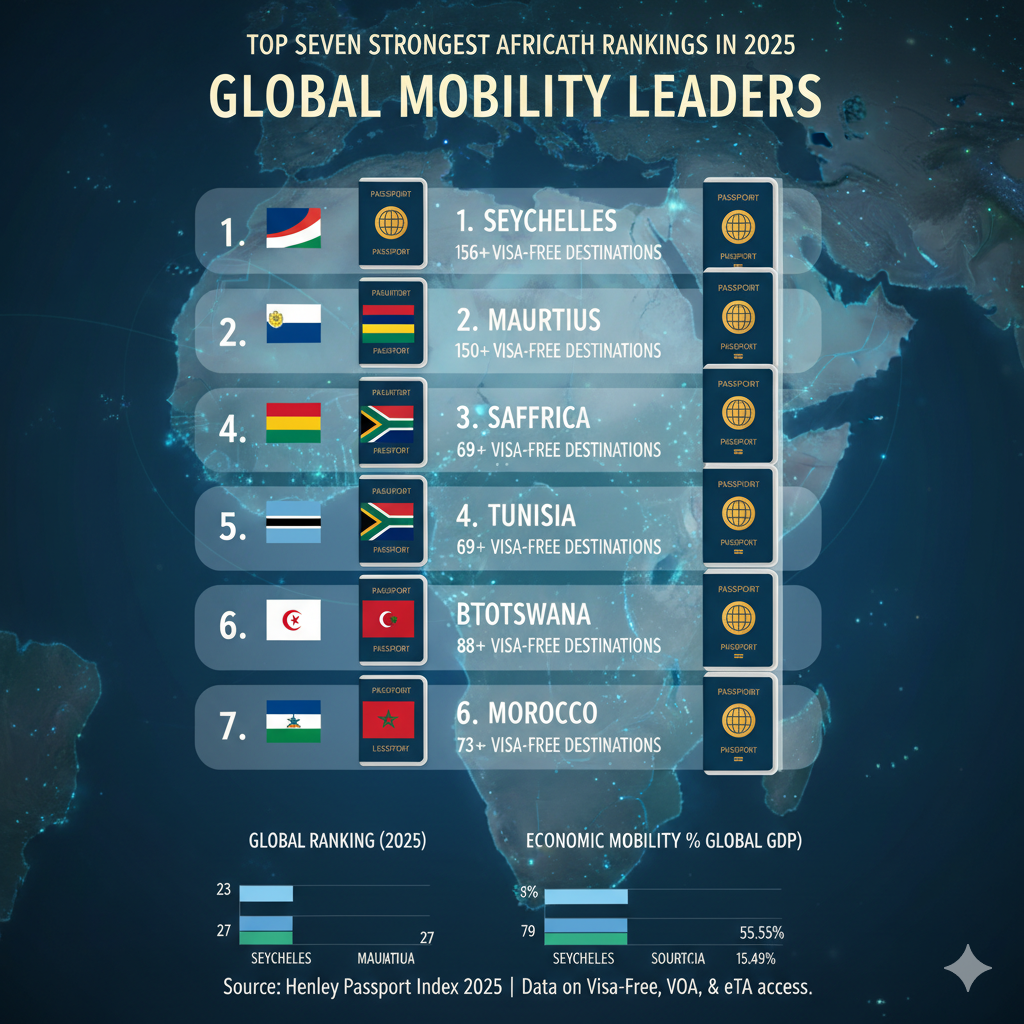 13-Oct-2025Top Seven Strongest African Passports in 2025
13-Oct-2025Top Seven Strongest African Passports in 2025 -
 07-Aug-2020The Pakistan Government Decides To Re Open Tourism Activities Across The Country
07-Aug-2020The Pakistan Government Decides To Re Open Tourism Activities Across The Country -
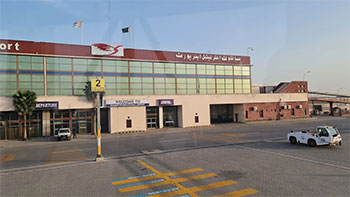 28-Aug-2025PIA Shifts Sialkot Flights to Lahore as Floodwaters Force Airport Closure
28-Aug-2025PIA Shifts Sialkot Flights to Lahore as Floodwaters Force Airport Closure -
 14-Aug-2025Your Guide to Best Hotels for Umrah Packages in Makkah & Madinah
14-Aug-2025Your Guide to Best Hotels for Umrah Packages in Makkah & Madinah -
 03-Dec-2025Azerbaijan Visa Requirements for Pakistan 2026 – Step-by-Step Process
03-Dec-2025Azerbaijan Visa Requirements for Pakistan 2026 – Step-by-Step Process -
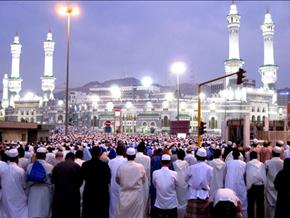 03-Feb-2025Predicted Number of Umrah Pilgrims in Ramadan 2025: A Comprehensive Guide for Pilgrims
03-Feb-2025Predicted Number of Umrah Pilgrims in Ramadan 2025: A Comprehensive Guide for Pilgrims -
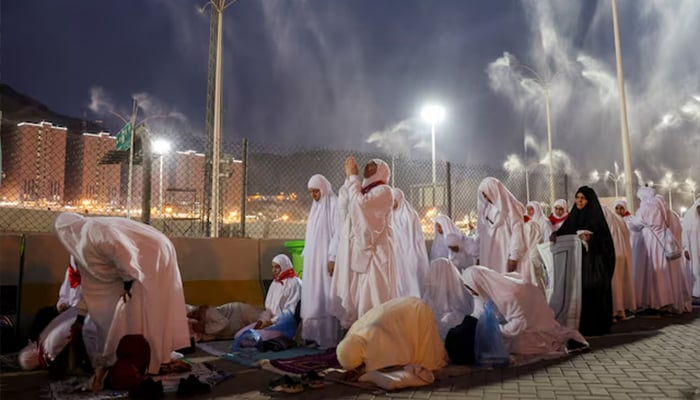 24-Feb-2025Women Pilgrims in 2025: New Rules for Performing Hajj Without a Mahram
24-Feb-2025Women Pilgrims in 2025: New Rules for Performing Hajj Without a Mahram -
 17-Jan-2023Eligibility Regarding Pakistani Citizens having U.S Visa
17-Jan-2023Eligibility Regarding Pakistani Citizens having U.S Visa -
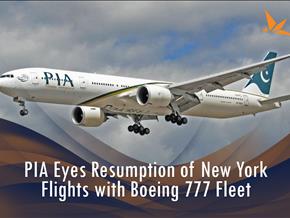 05-Dec-2024Pakistan International Airlines Eyes Resumption of New York Flights with Boeing 777 Fleet
05-Dec-2024Pakistan International Airlines Eyes Resumption of New York Flights with Boeing 777 Fleet -
23-Sep-2024Now Foreigners Get FREE Visas to Pakistan. New Policy Aims to Attract Tourism
-
 15-Aug-2023UAE Implements Travel Ban on Nationals from 20 African Countries
15-Aug-2023UAE Implements Travel Ban on Nationals from 20 African Countries
